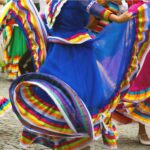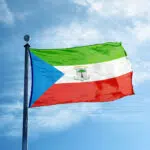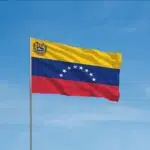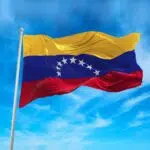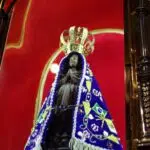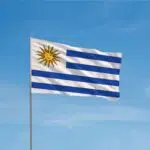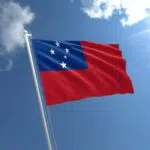Day of the Pluricultural Nation in Mexico is celebrated on October 12. The day is locally known as Dia de la Raza (The Day of the Races) and is celebrated across Mexico to mark the official recognition of the indigenous people of the country. The day also illuminates the multicultural, multilingual, and multiethnic culture of the country. The idea behind the day was brought into existence by the Mexican Senate to motivate the promotion and recognition of various cultures that coexist in Mexico.
History of Mexico: Day of the Pluricultural Nation
Day of the Pluricultural Nation promotes, respects, and guarantees the fundamental rights of indigenous peoples. Seven centuries ago, Christopher Columbus set out for Asia and ended up on San Salvador Island in North America. Day of the Pluricultural Nation is a rejection of the monolithic culture enforced by Columbus and the celebration of the indigenous people.
On November 19, 2020, the Mexican senate designated October 12 as the Day of the Pluricultural Nation with the endorsement of the Chamber of Representatives. The day celebrates the triumph of the spirit of Mexican heritage and rejects the tinges of colonization that continue to haunt the country. Mexicans from all walks of life deserve the same rights and opportunities. The day urges both native and non-native Mexicans to explore their Spanish heritage. More than 15 million Native Mexicans peacefully inhabit the lands of the country. Despite the fact that their rights are enshrined in the same constitution, indigenous people face a slew of institutional challenges, including a lack of access to primary education, clean water, and opportunities to build a life outside of their birthplace. Roughly 25% of Native Mexican women and 15% of Native Mexican men lack basic education, with only half of the primary school enrollees making it to graduation. To promote education among Hispanic students many organizations and companies have established scholarships for Hispanic students.
The day is an educational experience for all people of Mexico. Seminars, alongside celebrations across the country, are sponsored by the Governorate of Public education and the institutes of the Indigenous peoples and Indigenous, with special guidance from the President of the Indigenous Affairs Commission.
Mexico: Day of the Pluricultural Nation timeline
The European explorer, Columbus, arrives on the shores of Mexico.
Mexico concludes the decades-long War of Independence and becomes a federal republic.
Mexico self-designates itself as a pluricultural nation.
Mexico’s senate approves October 12 as Day of the Pluricultural Nation in Mexico and the resolution is sent to President Andrés Manuel López Obrador.
Mexico: Day of the Pluricultural Nation FAQs
What is a pluricultural nation?
A pluricultural nation is one in which indigenous people are allowed to self-govern themselves through an autonomous government, given they remain subject to the rights and duties of the country’s federal constitution.
Is Mexico a pluricultural country?
Mexico designated itself as a pluricultural country through a constitutional amendment in 1992 to conserve the diverse cultural fabric of the country.
Who colonized Mexico?
Mexico’s colonization began in the 15th century when a group of Spanish explorers arrived in North America to turn Mexico’s territory into a Spanish colony.
How to Observe Mexico: Day of the Pluricultural Nation
Honor the native tribes
Mexico is home to more than 12.5 million native Mexicans, who often live in poverty and have no access to the basic commodities necessary for survival. On this day and beyond, honor the lifestyle of the natives who made room for foreigners on their land and pay respect to their struggles.
Learn about the native culture
Native Mexican culture is beautiful and peculiar. Hidden in the crowns, feathers, and jewels are the centuries-long practices that hold communities together and connect the natives with their ancestors. The beautiful passed-down traditions are worthy of our acknowledgment.
Reject the remnants of colonialism
The Day of the Pluricultural Nation is a perfect time to practice decolonization. Reject the remnants of a brutal and oppressive system by rejecting colonial idols and symbols, and challenge the widespread pursuit of neocolonialism by uplifting the Indigenous peoples around you.
5 Interesting Facts About Mexican Native Tribes
No time for education
Roughly 25% of all Native Mexicans aged 15 to 59 are illiterate.
Christianity
More than 80% of all Native Mexicans are Catholics.
A step away from the future
65% of all Native Mexicans use wood to cook their food.
Families
90% of all Native Mexicans live with their families.
The rural cessation
Although Native Mexicans are roughly 20% of Mexico’s population, only 15% of the tribes live in its 10 principal cities.
Why Mexico: Day of the Pluricultural Nation is Important
It is their land
The Day of the Pluricultural Nation in Mexico asserts that we can respect and honor indigenous tribes without incurring any cost or inconvenience to ourselves. The day also recognizes the unique struggles that continue to plague indigenous communities. On the Day of the Pluricultural Nation, the people of Mexico join their hands and uplift the natives of the land.
It promotes coexistence
For many systematic and cultural reasons, Native Mexicans are at risk of losing their lives and livelihoods. Offices and government institutions organize seminars, and Native Mexicans share tidbits about their history. The day is an enlightening experience for everyone.
To honor is to protect
Native Mexicans are at the risk of losing their lives and livelihoods due to many systematic and cultural reasons. Anointing a day to the cause of indigenous people organizes the community and equips them with the tools to protect themselves and their communities.
Mexico: Day of the Pluricultural Nation dates
| Year | Date | Day |
|---|---|---|
| 2025 | October 12 | Sunday |
| 2026 | October 12 | Monday |
| 2027 | October 12 | Tuesday |
| 2028 | October 12 | Thursday |
| 2029 | October 12 | Friday |




